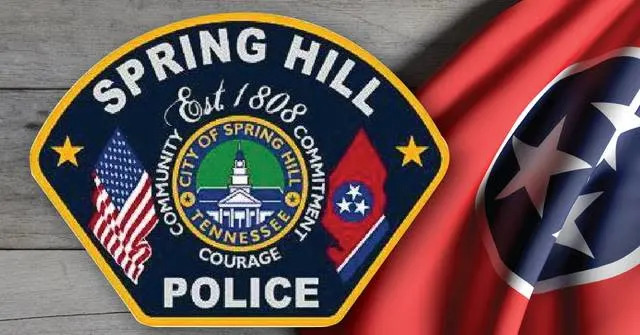Jay Powell, The Daily Herald Tue, January 4, 2022,
Spring Hill Police Department is pursuing a new policy for combating false alarm calls, which according to city staff is a problem in the city.
As the Board of Mayor and Aldermen reconvened for its first meeting of the new year, Spring Hill Police Department Chief Don Brite presented data, regarding the city’s alarm permits and said the municipal code should be updated.
In 2019, SHPD’s emergency dispatch was consolidated with Williamson County. Prior to the consolidation, dispatch had operated from SHPD’s headquarters, which included issuing alarm permits.
Since the 2019 transfer, Brite said the situation has gotten somewhat “out of hand.”
“Once we transferred over to Williamson County, it kind of got divided to where upstairs they do the registrations, we take the permits, and we log them in ourselves,” Brite said.
Brite added that as the city grows with increasing registrations, the department has been backlogged.
For the timeframe from Jan. 1 to Nov. 15, 2021, the city received a total of 496 permits. Also out of 1,010 permits throughout the city, 814 had expired.
During that timeframe, SHPD had 848 alarm calls, which resulted in 471 response calls, with only 79 legitimate active permits.

“Obviously, we have a situation here where we’re not managing our alarms as well as we should be,” Brite said.
To solve the problem, Brite proposed hiring an outside company to manage its alarm permits.
“It’ll take staff out of the equation, where they can manage it from A-Z,” Brite said.
By hiring a third party management company, the city would collect 70% of the revenue, with 30% going toward the company, as well as no additional cost to the city for hiring said company, Brite said. The goal would be to make businesses and residents compliant with the city’s municipal code and reduce the number of false calls.
City Administrator Pam Caskie said studies have shown that false alarm calls have proven to be a detriment to officers on duty, not only in wasted time but also to their health and well being. As someone who has been “adamant” in dealing with false alarms, Caskie considers those jobs “hard enough as it is.”
“The primary reason to avoid false calls is the health of the individuals responding,” Caskie said.
“There is lots of proof that one of the reasons police and fire have heart issues higher than the national average is because the chemicals in their body that start pumping when they get called on a call and then they don’t actually have to do anything is very hazardous to their health. They are better off having to go out and fight a fire than to get on a truck thinking they are going to fight a fire, only to find out there’s nothing.”
It’s also something people don’t take into consideration when it comes to managing their personal alarm systems.
“They don’t think it’s a big deal, that it’s just one call a month, but by the time you multiply it by every alarm, every alarm company and business in the city, it becomes a real wear and tear on our personnel,” Caskie said.
Another suggestion Brite added would be to change the city’s municipal code, which currently issues $50 court citations on every seventh false alarm call, decreasing the number to three or possibly four.
.
This article originally appeared on The Daily Herald: Spring Hill Police seeks solutions for false alarm calls
